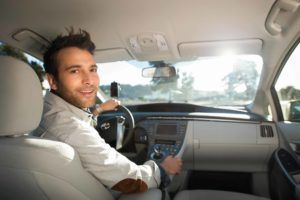 Rideshare services are finding their place in every state, sometimes leaving a bad taste when a driver hasn’t been investigated thoroughly. California was the first state to regulate ridesharing services by requiring CPUC (California Public Utilities Commission) licenses, a minimum of $1 million in insurance, vehicle inspections, driver training programs, a “zero tolerance” policy on drugs and alcohol, and criminal background checks. Most of these requirements are already implemented within the company-wide regulations rideshare services such as Uber and Lyft, but having them be required by law is victory for consumers. Now, California is ready to take it up another notch with new rideshare laws.
Rideshare services are finding their place in every state, sometimes leaving a bad taste when a driver hasn’t been investigated thoroughly. California was the first state to regulate ridesharing services by requiring CPUC (California Public Utilities Commission) licenses, a minimum of $1 million in insurance, vehicle inspections, driver training programs, a “zero tolerance” policy on drugs and alcohol, and criminal background checks. Most of these requirements are already implemented within the company-wide regulations rideshare services such as Uber and Lyft, but having them be required by law is victory for consumers. Now, California is ready to take it up another notch with new rideshare laws.
Along with ignition interlock expansion across the state, California’s Governor Brown passed new rideshare laws for Uber and Lyft drivers this year. They include:
- Stricter background checks for drivers.
- Employment ineligibility for registered sex offenders, felons (violent crimes) and those convicted of DUIs within 7 years of applying to be a driver.
- Drivers for Uber and Lyft are now charged with DUI if their BAC measures .04 percent as opposed to .08 BAC for regular drivers. .04 percent BAC is the legal limit for CDL (commercial driver’s license) drivers in California.
- For any violation of these new Rideshare laws, companies could face fines of up to $5,000.
Not only that, but that same ignition interlock expansion means that in 2018, any DUI offender may have to install the device, too.
The growth of these rideshare services requires more and more regulation of the independent contractors as the businesses grow. Government regulation of these businesses helps keep the minds of the consumers at ease while focusing on keeping crime related incidents such as DUI and traffic violations down. Even the law requiring licensed vehicle inspections, though not fully backed by the companies, has its purpose, requiring safe passage for all passengers, including the driver. Regulations are even beginning to cover rented vehicles used for the purpose of “ride-hailing.”
As services like Lyft and Uber grow, we expect to see more regulations covering the rideshare laws surrounding them, in hopes to make travels safer, easier and more convenient for the consumers.

 Can Prison Cure a Habitual DWI Offender?
Can Prison Cure a Habitual DWI Offender?